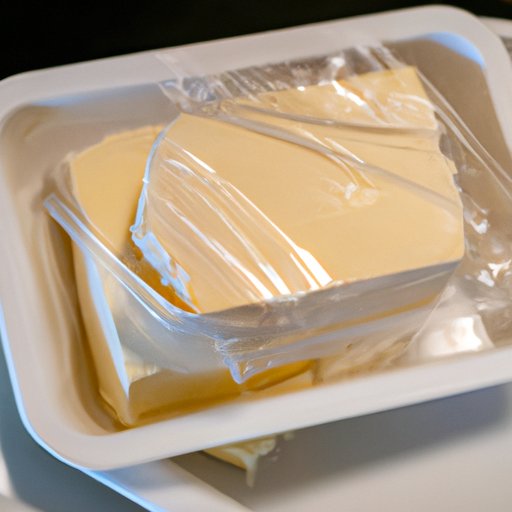
How to Get Butter to Room Temperature Quickly: A Comprehensive Guide
Butter is a crucial ingredient in many recipes, but using it straight from the fridge can lead to clumpy doughs, uneven textures, and difficulty in blending with other ingredients. This is why it’s essential to bring butter to room temperature before baking or cooking. In this article, we’ll explore different methods for getting butter to room temperature quickly so that you can enjoy perfectly made desserts every time.
Plan Ahead
Planning ahead is the easiest and most foolproof method for getting butter to room temperature. Take the butter out of the fridge ahead of time and let it sit on the counter, covered, until it reaches room temperature. Depending on the temperature of your kitchen, this process can take anywhere from 1-2 hours.
To ensure success, try setting a reminder on your phone or work the butter into your meal prep routine.
Grate the Butter
If you don’t have the time to plan ahead, grating butter can be a quick and easy way to get it to room temperature in a matter of minutes. You can use a box grater or a food processor to shred the butter into small pieces.
Simply spread the shreds on a plate, and they will come to room temperature in under 10 minutes. It’s an especially useful technique when making crumbly pastry, like scones or pies, as it offers a better texture.
Microwave Method
If you’re in a hurry, the microwave method can be a quick way to get butter to room temperature, but it can be risky if the butter is over-microwaved.
Cut the butter into small pieces and place them on a microwave-safe plate. Microwave the butter in 5-10 second increments, checking frequently, until it’s slightly softened, but not melted. Depending on the power of your microwave and the amount of butter you’re softening, it should take between 10-30 seconds.
Warm Water Bath
The warm water bath method is gentle and reliable for getting butter to room temperature. Fill a small bowl with warm (not hot) water and float the butter on top of it. The heat from the water will gently melt the butter without turning it into a liquid.
Depending on how cold your butter is, it should take around 5-10 minutes to come to room temperature. Make sure to remove the butter from the water as soon as it softens to avoid melting.
Double Boiler
The double boiler method is a more time-consuming method that is suitable for recipes that call for melted butter, but it can also be used to get butter to room temperature.
Fill a saucepan with water and bring it to a simmer. Place a heatproof bowl on top of it, making sure the bowl does not touch the water. Cut the butter into small pieces and place them in the bowl. Gently stir the butter over the heat until it melts.
Once the butter is melted, remove the bowl from the heat and let it cool until it reaches room temperature. Make sure to stir the butter occasionally to prevent the outside from hardening before the inside has a chance to cool.
Slash Method
If you don’t mind exerting a bit of elbow grease, cutting the butter into small pieces and exposing more surface area can speed up the process of getting it to room temperature.
Cut the butter into small cubes and spread them out on a plate. Let them sit at room temperature for about 20-30 minutes, or until they’re soft. The smaller the cubes, the sooner the butter will soften.
Conclusion
Now that you know the different methods for getting butter to room temperature quickly, it’s essential to remember that planning ahead is the most foolproof way to ensure success.
However, it’s always good to have a few quick methods up your sleeve for those times when you need butter at room temperature ASAP. Experiment with different techniques to figure out which ones work best for you, and you’ll be baking like a pro in no time.





